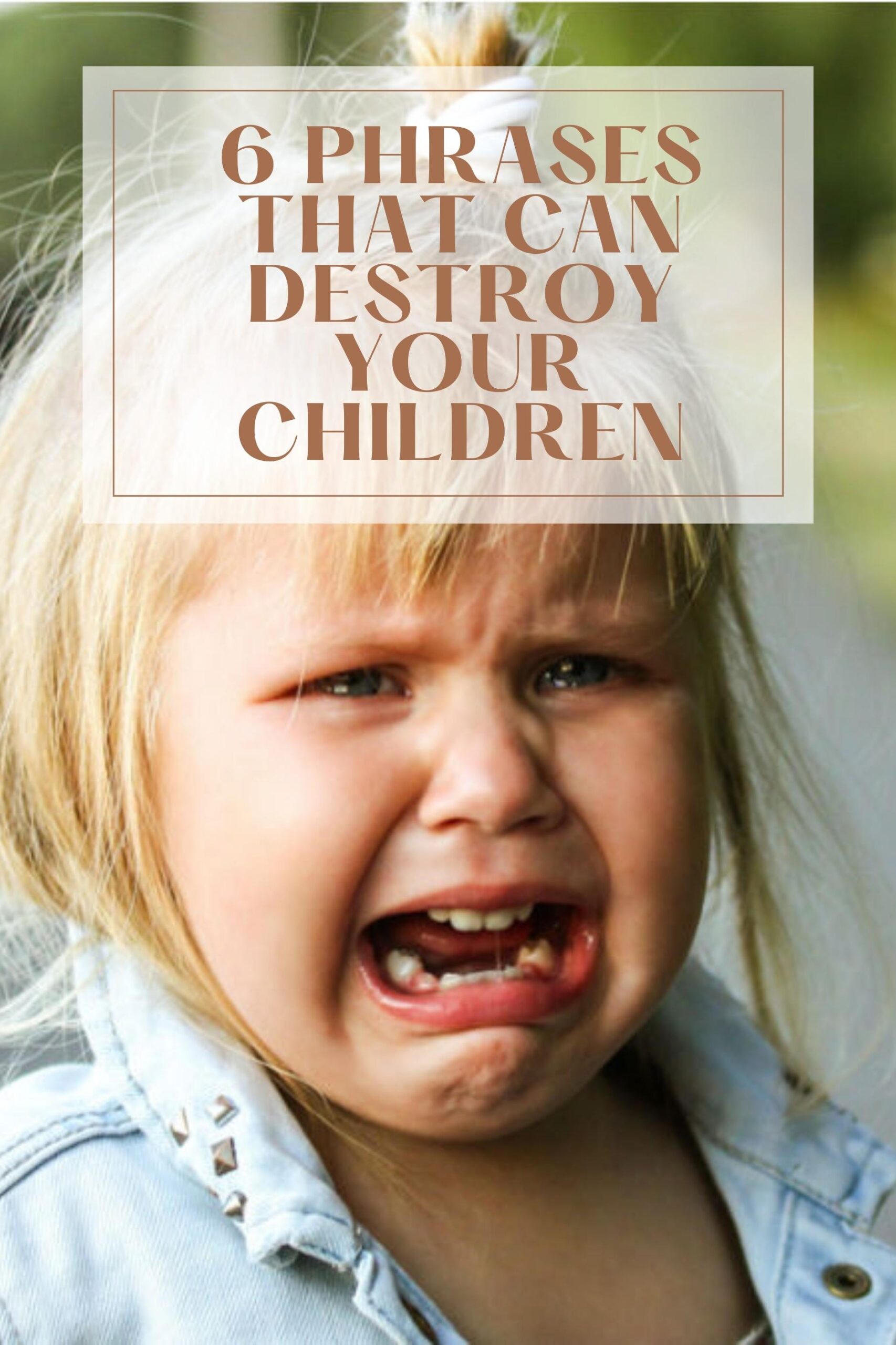Discover the 6 phrases that can negatively impact your children’s emotional well-being and learn how to communicate effectively to avoid them. Ensure your child’s mental health and happiness with these essential tips.
Effective communication is the cornerstone of any healthy relationship, especially when it comes to parenting. The words we choose to use with our children can have a profound impact on their emotional well-being and self-esteem. In this article, we will explore six phrases that can potentially harm your children and provide guidance on how to communicate more effectively. By avoiding these destructive phrases and adopting a positive approach, you can foster a supportive and nurturing environment for your child’s growth and development.
1. You’re a Failure

Using the phrase “You’re a failure” can be incredibly damaging to a child’s self-esteem. It labels them in a negative way and can lead to feelings of inadequacy. Instead of using this phrase, it’s important to encourage your child to see mistakes as opportunities for growth. You can say something like, “Mistakes happen; let’s learn from them and do better next time.” This approach promotes a growth mindset, where challenges are seen as a chance to improve rather than as failures.
2. I’m Disappointed in You

Expressing disappointment without context can be hurtful to a child. It leaves them feeling unloved and unsupported. Instead, when you’re disappointed with your child’s actions, take the time to discuss the situation calmly. Offer guidance and understanding by saying, “I understand why you made that choice, but let’s talk about how we can make better decisions in the future.” This approach maintains open lines of communication and helps your child learn from their actions.
3. Why Can’t You Be More Like

Comparing your child to others is a harmful practice that can lead to low self-esteem and resentment. Instead of making such comparisons, celebrate your child’s individuality and unique qualities. Let them know that it’s okay to be themselves and that you appreciate their unique traits. Say something like, “You are special just the way you are, and I love you for being yourself.”
4. You’re So [Negative Trait]
![4. You're So [Negative Trait]](https://mommykingdom.com/wp-content/uploads/2023/09/image-116.png)
Labeling your child with negative traits can have long-lasting effects on their self-image. Instead of using such labels, address specific behaviors that may be concerning and encourage positive alternatives. For instance, instead of saying, “You’re so lazy,” you can say, “I noticed you didn’t finish your homework. Let’s work together to find a more efficient way to get it done.” This approach focuses on the behavior rather than making a negative judgment about the child’s character.
5. Stop Crying, You’re Being Too Sensitive

Invalidating your child’s emotions can hinder their emotional development and understanding. Instead, validate their feelings by acknowledging them. Say something like, “I can see that you’re feeling upset. It’s okay to express your emotions, and I’m here to listen and help you through this.” This approach teaches your child that their feelings are valid and that you’re there to support them emotionally.
6. Because I Said So

While parental authority is essential, this phrase can stifle critical thinking and curiosity in children. Instead of relying on this phrase, take the time to explain your reasoning behind a rule or decision. Help your child understand the why behind the what. For example, say, “We have a rule about bedtime because getting enough sleep helps you stay healthy and do well in school.” This approach promotes understanding and cooperation.
Final Words
Effective communication is the cornerstone of a healthy parent-child relationship. The six phrases discussed here can indeed harm your children, but by replacing them with positive, constructive communication, you can nurture their emotional well-being and help them thrive. Remember that words have the power to shape your child’s future, so choose them wisely.
FAQs
What should I say instead of using these phrases?
Encourage your child by providing constructive feedback and fostering a supportive environment. For example, replace “You’re a failure” with “Mistakes happen; let’s learn from them.”
How can I help my child build resilience?
Encourage resilience by praising their efforts, teaching problem-solving skills, and emphasizing that setbacks are part of life.
Is it ever okay to express disappointment?
Yes, but it’s essential to explain why you’re disappointed and how they can improve. Offer encouragement and support.
Can comparing my child to others be harmful?
Yes, comparisons can harm self-esteem. Focus on your child’s strengths and help them develop in their unique way.
Why is validating emotions important?
Validating emotions helps children develop emotional intelligence and feel understood, fostering healthy emotional growth.
How can I explain rules without resorting to “Because I said so”?
Provide age-appropriate explanations, discuss consequences, and involve children in rule-setting when possible.
